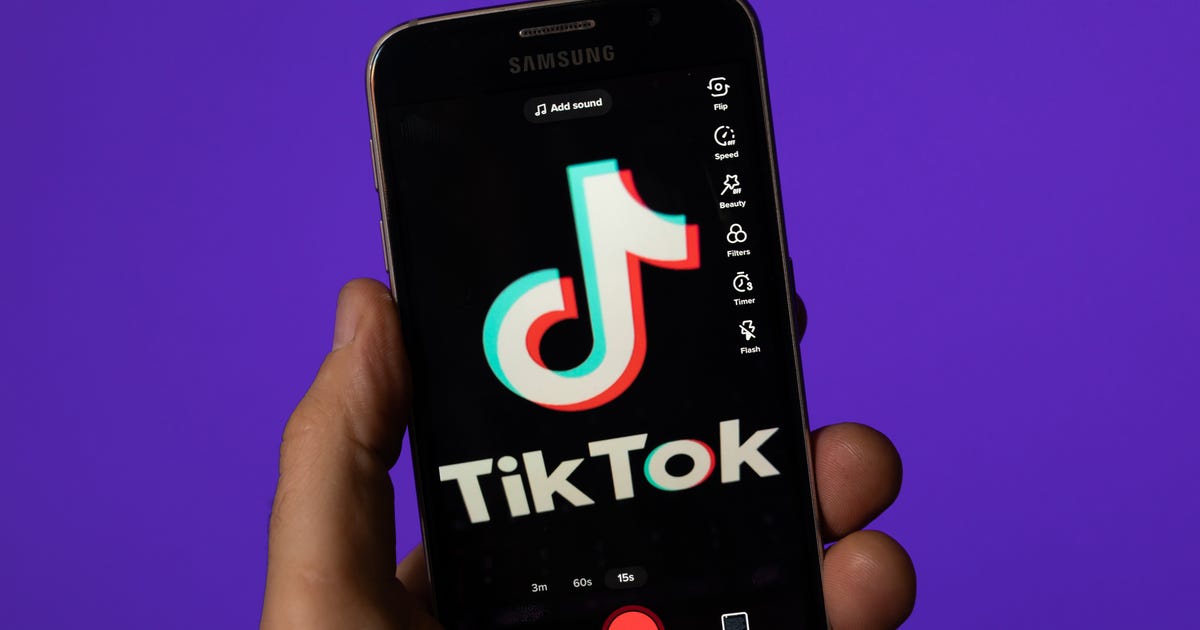How to stop following on tiktok how to follow on tiktok how to get help from tiktok need to know tiktok why does tiktok not let me follow how to notice in tiktok i want to watch tiktok tiktok wands tiktok whatsapp group tik tok what s your name

TikTok Wants to Remind You to Take Breaks From the App
What's happening
TikTok is releasing more tools in the coming weeks to enable people to limit screen time.
Why it matters
It's another example of how social media companies are responding to criticism that their apps have harmful mental health impacts, especially on young people.
TikTok users who spend too much time mindlessly scrolling through the app's short-form videos will soon have another way to limit their screen time.
TikTok said in a blog post Thursday that it's releasing a new tool in the coming weeks that'll enable you to schedule reminders to take a break from the app after a certain amount of time. TikTok currently has a tool that can prompt you to enter a passcode if you've spent 40, 60, 90 or 120 minutes on the app. The new screen-time tool includes an option to set reminders for whatever amount of time you choose such as 10 or 20 minutes. TikTok also said it will also remind users between the ages of 13 and 17 about the screen-time tool if they use the app for more than 100 minutes in a single day.
TikTok does allow users under 13 years old to use the app, but their experience is limited so they don't have access to certain features such as sharing and commenting on videos or maintaining a profile or followers. The company didn't respond to questions about how screen breaks apply to users under 13.

TikTok will let you schedule breaks from the app.
TikTokIn addition, TikTok is releasing a screen time dashboard that will give you a sense of how much time you're spending scrolling through videos. The dashboard includes data about daily time spent on the app, the number of times you open TikTok and how much you use the app during the daytime versus the night time. TikTok also published a new mental well-being guide in its Safety Center that includes tips about how to respond to friends and family who are struggling with their mental health.
"Having a positive relationship with digital devices and apps isn't just about measuring screen time," Jordan Furlong, product manager for digital well-being at TikTok, said in the blog post. "It's also about feeling in control of how we use technology and ensuring that the time we spend online contributes positively to our sense of well-being."
The release of new tools that encourage screen time limits is another example of how social media companies are responding to criticism that their apps are harming people's mental health, especially teenagers. In March, a group of state attorneys general said it was investigating how TikTok harms young users and what the company knew about those harms.
Last year, The Wall Street Journal published an investigation that showed how TikTok's algorithm can send users down a rabbit hole of content by using data such as how long users linger on a video. That can be problematic if the app continues to show sad videos to someone who is depressed or pushes more extremist content to conspiracy theorists.
The potential negative mental health impacts of social media on users have been an ongoing discussion for many years. Concerns about this issue, though, reached new heights after Frances Haugen, a former Facebook product manager turned whistleblower, leaked documents, including one that showed how Instagram can make teenage girls feel worse about their bodies. Facebook, now Meta, said that its research was mischaracterized and that Instagram can also help teenagers connect to their family and friends.
US lawmakers have held a series of hearings related to the topic and heard testimony from various social media companies including TikTok that say they're taking the mental health of their users seriously.
Social media apps have been trying to give people more control over how they use the platform. In 2018, Facebook and its photo-and-video service Instagram released tools to limit time spent on the app. Instagram also unveiled new parental controls in March.
In 2020, TikTok released parental controls that allow parents to limit the amount of time their children spent on the app. It's unclear whether these tools have been working or are widely used among TikTok's more than 1 billion users. TikTok hasn't released data about how many people use daily screen time limits.
Source

